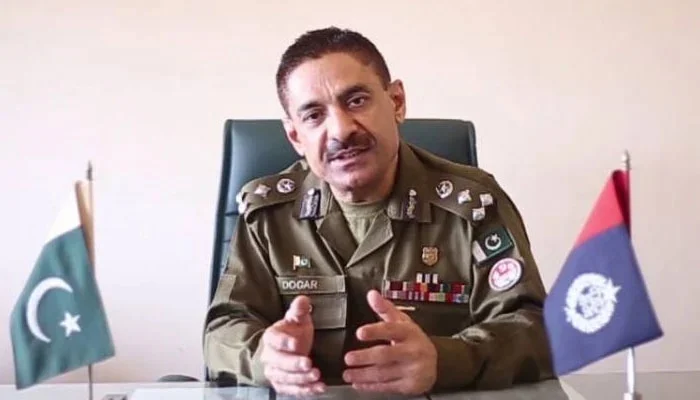The Lahore Capital City Police Officer (CCPO) Ghulam Mahmood Dogar has been reinstated by the Supreme Court of Pakistan after it suspended a notification issued by the Punjab interim government to transfer him.
This decision was made following a hearing on a petition against Dogar’s transfer, during which the Election Commission of Pakistan (ECP) secretary disclosed that the Punjab government made an oral request to transfer Dogar on Jan 23, which was followed by a written application on Jan 24.
The ECP accepted the request on Feb 6. The three-member bench, headed by Justice Ijazul Ahsan and comprising Justice Mazahar Ali Akbar Naqvi and Justice Muneeb Akhtar, questioned the validity of the oral communication and the implementation of the transfer.
This is not the first time Dogar has been reinstated by the top court. In December last year, he was reinstated as Lahore police chief after being suspended by the federal government in November.
This suspension was due to PTI protesters storming the Punjab Governor’s House following an attack on Imran Khan in Wazirabad.
The Supreme Court’s decision to reinstate Dogar has once again highlighted the issues surrounding the transfer and appointment of police officers in Pakistan. In recent years, there have been numerous cases of politically motivated transfers and appointments of police officers.
These transfers and appointments have often been used to target officers who are seen as not being loyal to the ruling party. This practice not only undermines the independence of the police but also puts the lives of police officers at risk.
The politicization of the police is a major problem in Pakistan, and it has had a significant impact on the effectiveness of the police force.
Police officers who are appointed based on their political affiliations rather than their skills and experience are less likely to perform their duties impartially. This, in turn, makes it difficult for the police to maintain law and order and protect the citizens of the country.
In order to address this issue, there is a need for the depoliticization of the police force. The police should be appointed based on their skills, experience, and merit rather than their political affiliations.
The appointment and transfer of police officers should be made by an independent body rather than being left to the discretion of the ruling party. This would help to ensure that the police force is able to perform its duties impartially and effectively.
In conclusion, the Supreme Court’s decision to reinstate Dogar has once again highlighted the issues surrounding the politicization of the police in Pakistan.
It is essential that steps are taken to address this issue and ensure that the police force is able to perform its duties impartially and effectively. Only then can the citizens of Pakistan be provided with the security and protection they deserve.
